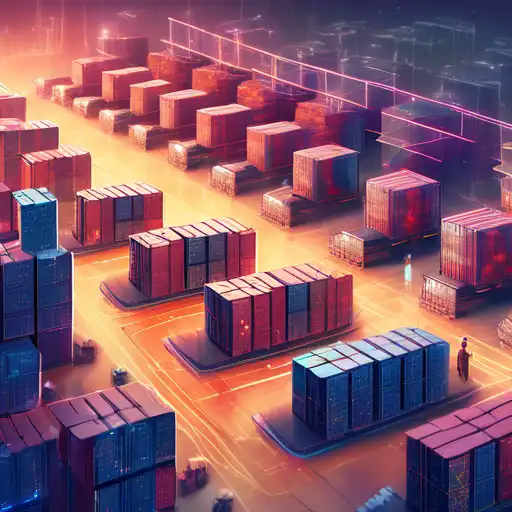The Transformative Power of Blockchain in Modern Supply Chains
In the digital age, blockchain technology is emerging as a revolutionary force in transforming supply chains across industries. By offering unparalleled transparency, security, and efficiency, blockchain is setting new standards for how goods are tracked and transactions are recorded. This article explores the multifaceted ways blockchain is reshaping supply chains, from enhancing traceability to reducing fraud and operational costs.
Enhanced Transparency and Traceability
One of the most significant advantages of blockchain in supply chains is its ability to provide end-to-end transparency. Every transaction or movement of goods can be recorded on a decentralized ledger, accessible to all parties involved. This level of traceability ensures that every product's journey from manufacturer to consumer can be verified, significantly reducing the chances of counterfeit goods entering the supply chain.
Reduction in Fraud and Errors
Blockchain's immutable ledger means that once data is entered, it cannot be altered or deleted. This feature is crucial in combating fraud and reducing errors in the supply chain. By ensuring that all transactions are permanently recorded and verifiable, blockchain minimizes the risk of fraudulent activities and discrepancies in inventory management.
Streamlined Operations and Cost Savings
By automating and digitizing many of the processes involved in supply chain management, blockchain technology can significantly reduce administrative and operational costs. Smart contracts, for example, can automatically execute transactions when predefined conditions are met, eliminating the need for intermediaries and speeding up the entire process.
Improved Supplier and Consumer Trust
The transparency and security provided by blockchain foster greater trust between suppliers, manufacturers, and consumers. Consumers can verify the authenticity and origin of products, while businesses can ensure their suppliers adhere to agreed-upon standards and practices. This mutual trust is invaluable in building long-term relationships and brand loyalty.
Challenges and Considerations
Despite its potential, the adoption of blockchain in supply chains is not without challenges. Issues such as scalability, integration with existing systems, and the need for industry-wide standards must be addressed. However, as technology advances and more organizations recognize its benefits, blockchain is poised to become a cornerstone of modern supply chain management.
In conclusion, blockchain technology is revolutionizing supply chains by enhancing transparency, reducing fraud, and streamlining operations. As businesses continue to explore and adopt this innovative technology, the future of supply chain management looks more secure, efficient, and transparent than ever before. For more insights into how technology is transforming industries, explore our technology trends section.
